Write Us
We are just a call away
[ LET’S TALK AI ]
X
Discover AI-
Powered Solutions
Get ready to explore cutting-edge AI technologies that can transform your workflow!

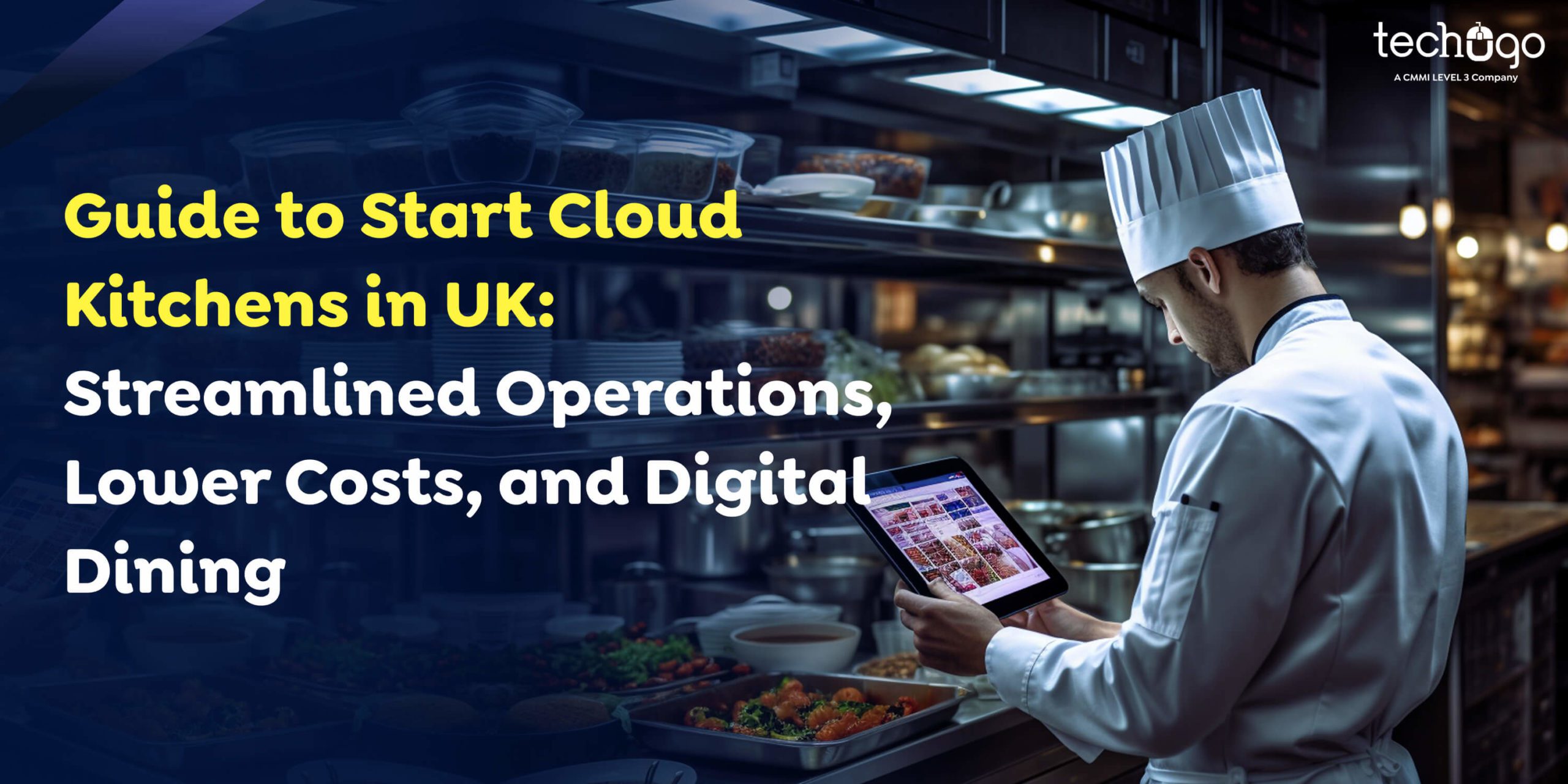
Virtual or cloud kitchens are transforming how businesses serve their customers! These innovative kitchens operate without dine-in areas, focusing entirely on online orders to tap into a wider audience. The cloud kitchen business thrives on the support of food delivery apps, which act as a bridge between operators and customers, ensuring seamless service and growth opportunities.
Ready to explore the exciting world of cloud kitchens? In this article, we’ll uncover everything—from the different business models and benefits to the operational, financial, and technological foundations that make this model a success.
Thinking of launching your own cloud kitchen? Stay ahead by leveraging trending technologies and collaborating with app developers who can bring your vision to life. Let’s make it happen!

A cloud kitchen is a modern and innovative concept in the restaurant industry that changes the old strategies for digital transformation. Cloud kitchens are exclusively engaged in the online delivery of meals since they lack conventional eating facilities. Stress efficiency in both the cooking sector and delivery procedures is needed to cope with the increasing need for food services on the Internet.
1. No Dine-In Area: Cloud kitchens in UK function without a dining space, allowing them to operate in smaller, more economical locations.
2. Online Presence: These kitchens rely on digital platforms and food delivery applications to engage with customers and handle orders.
3. Numerous Brands: Many cloud kitchens house multiple virtual restaurants or brands under one roof, optimizing the use of kitchen resources.
4. Streamlined Operations: Leveraging trending technologies and data analytics, cloud kitchens in UK enhance their operations for improved efficiency and cost-effectiveness.
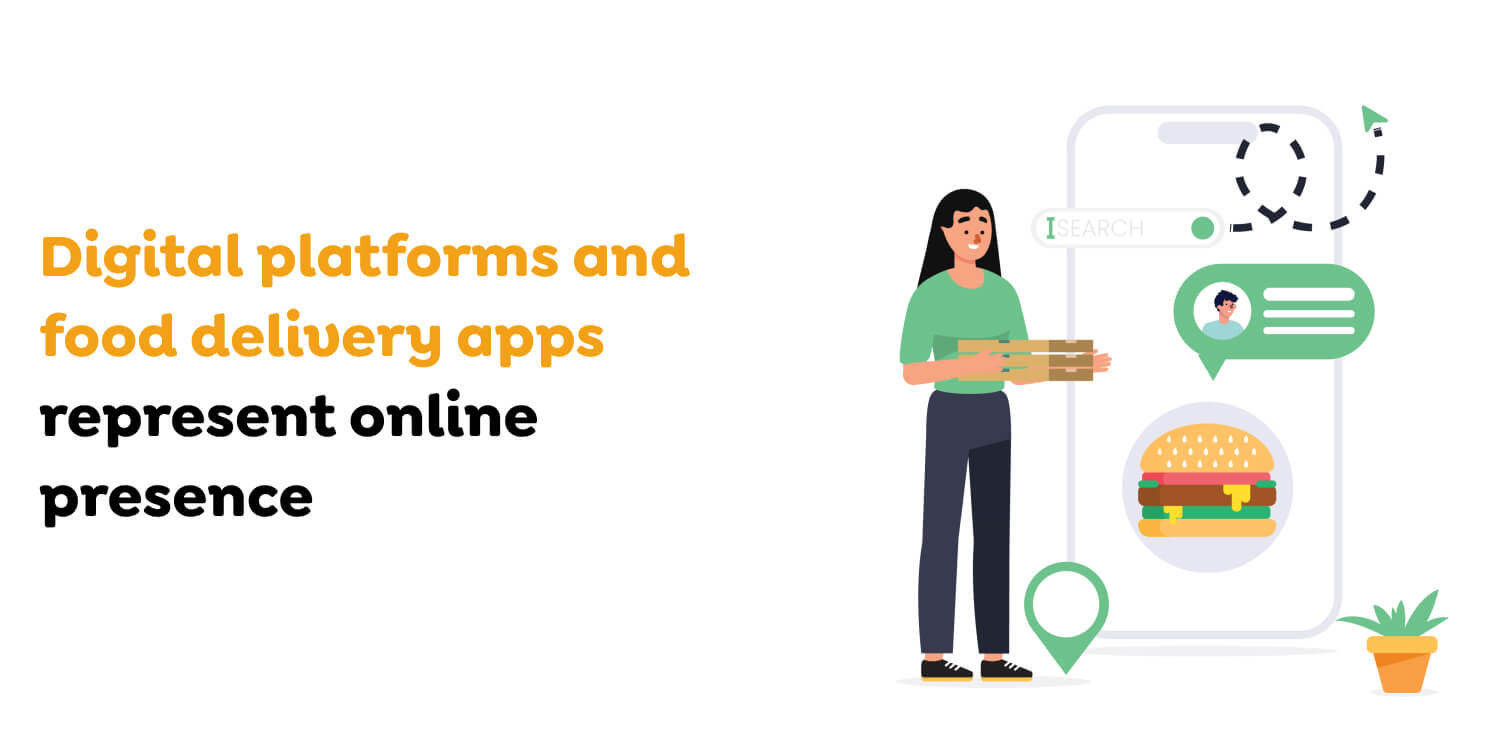
To grasp how the grocery industry and cloud kitchens in UK operate, it’s essential to understand their functioning and how they cater to modern customers.
Also Read : 7 Interesting Facts About Building Grocery Delivery Apps!
Understanding the operational processes and customer-centric approach of cloud kitchens in UK lays the groundwork for exploring the technology that drives their success.
Also Read : Intercity Food Deliveries is the New Experiment of the Industry: Here’s More!
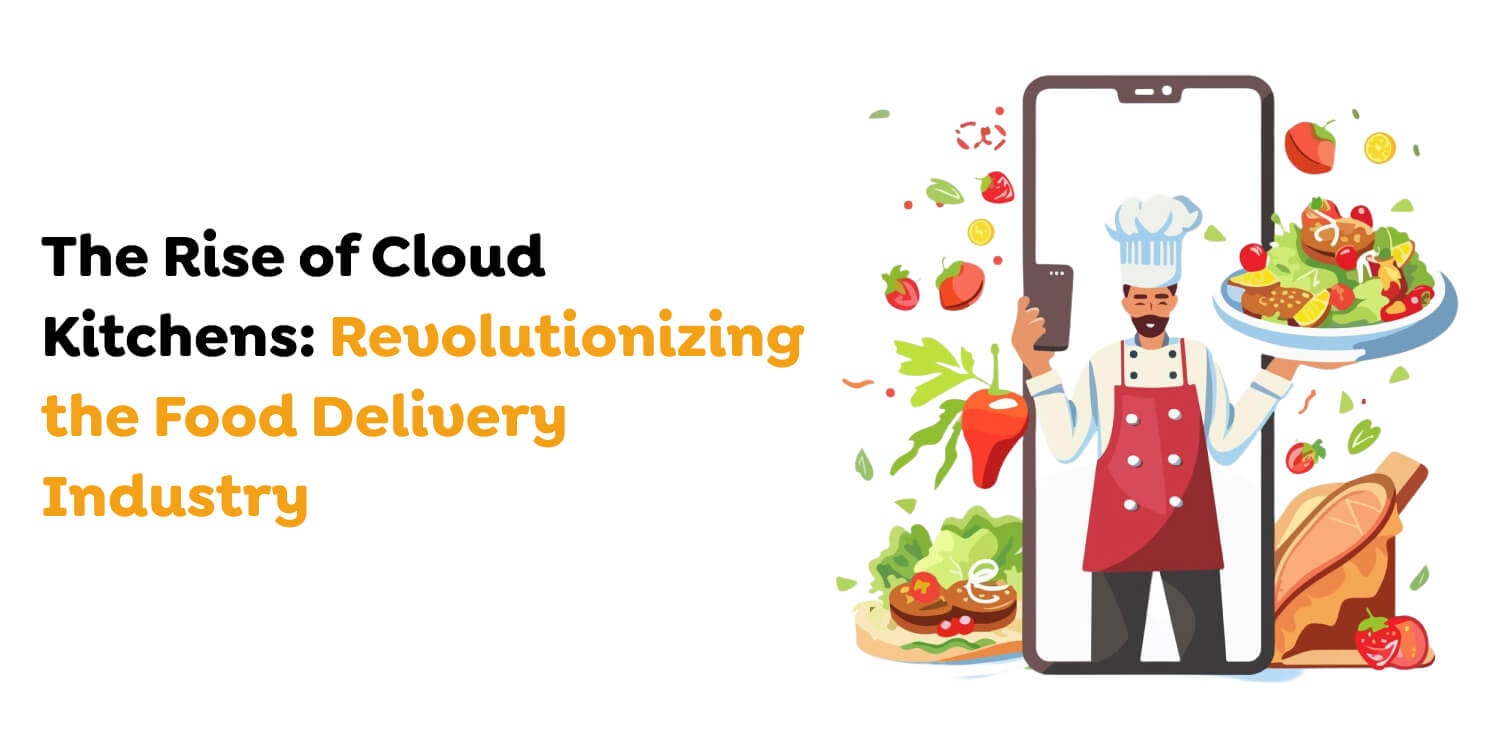
Cloud kitchens have experienced fast business development in recent years and are continuing to develop. The cloud kitchen market generated USD 58.61 billion in 2022, and analysts predict it will grow to USD 177.85 billion at a rate of 11.74% through 2032. This surge is driven by the increasing demand for food delivery services and the rise in online food ordering. Cloud kitchens will lead food service operations because their affordable setup and quick food delivery methods will allow them to serve more customers who seek these services.
The UK market is witnessing the rise of cloud kitchens as a key player in the food service industry. Forecasted data shows cloud kitchens will become a significant part of food delivery sales structures by 2025. Research indicates that UK cloud kitchens will grow 10% yearly because people are turning more to online food orders. The expanding cloud kitchen sector gains momentum as technology advances, logistics improve, and kitchen operators can serve more customers effectively.
Also Read : What is Restaurant POS Integration? How to Use it Effectively?
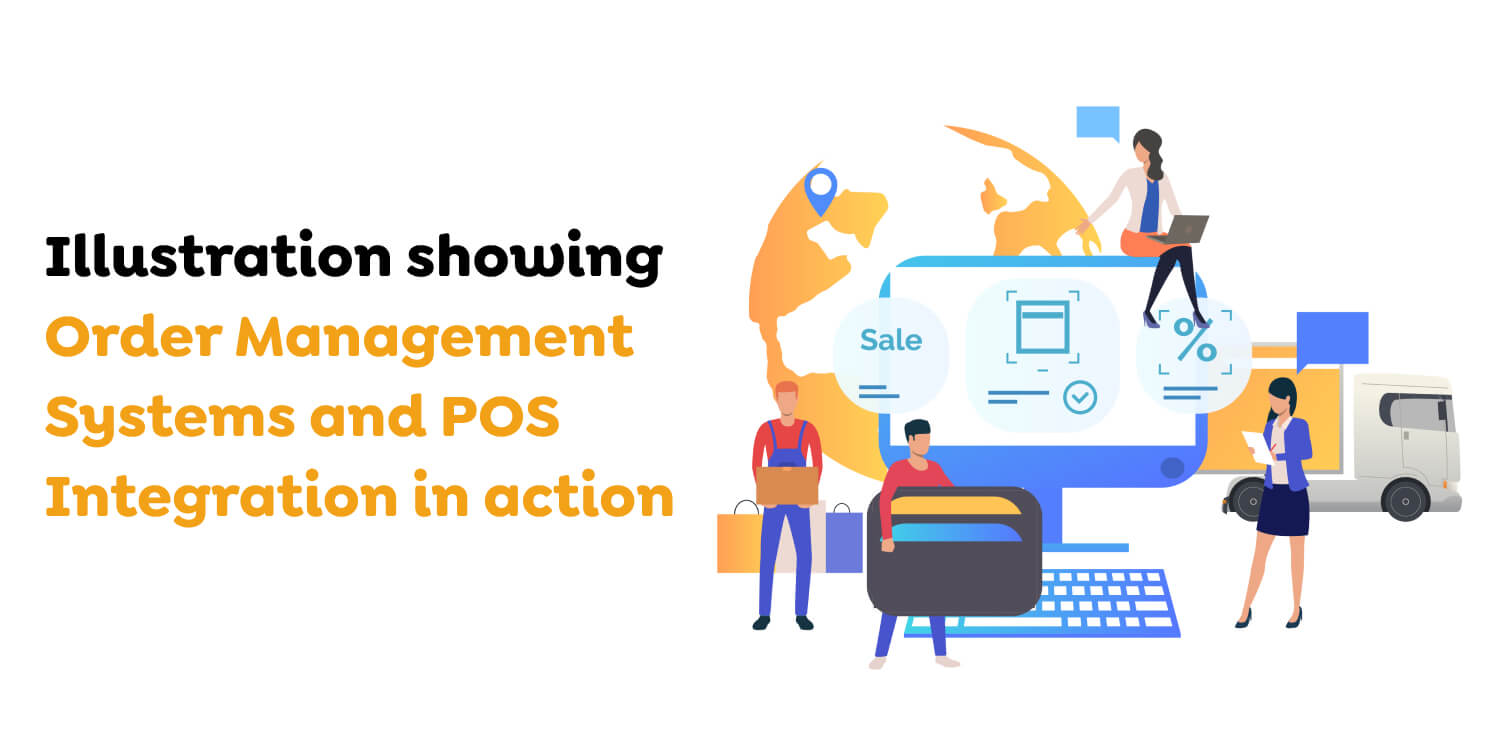
Understanding the technology powering cloud kitchens is crucial, as it forms the backbone for their efficient and speedy operations.
Contact our on-demand app development company if you want to incorporate the latest technologies like blockchain, AI and ML, React native, and more into your app.
Exploring the diverse business models of the cloud kitchen industry is essential for new kitchen entrepreneurs. Below, we’ve outlined each type of cloud kitchen business model:
Also Read : Feast Your Eyes: How AI is Revolutionizing Food Delivery

Commencing your cloud kitchen entails strategic measures, but with your astute approach, how to start a cloud kitchen becomes more straightforward than you might imagine. Here’s a succinct manual with 10 pivotal points to aid your success:
Conduct comprehensive market analysis to assess the need for particular cuisines and recognize rivals and prospective clientele.
Select an appropriate site that meets legal and regulatory standards for safety and operational effectiveness.
Acquire essential permits, such as food business licenses, in accordance with local regulations.
Collaborate with food delivery consolidators to broaden your scope, guaranteeing seamless incorporation with online food delivery portals.
Allocate funds towards vital kitchen apparatus and infrastructure to bolster efficient and expandable operations.
Though not obligatory at the outset, contemplate integrating online invoicing software for streamlined order handling and documentation, particularly if your order volume is substantial.
Formulate impactful marketing tactics to publicize your cloud kitchen across digital and social media platforms and explore traditional channels as well.
Allocate resources towards premium, environmentally-conscious packaging options to elevate the customer journey, acknowledging the crucial function packaging serves in acquiring customers.
Administer initial expenditures efficiently by contemplating costs like kitchen gear, packaging, and marketing ventures.
Collect consistent customer input to consistently enhance day-to-day activities and culinary excellence, increasing customer loyalty.
Understand the financial factors to start a cloud kitchen!
Also Read : Feeding the Future: How to Broaden the Catering Horizons Using the On-Demand App

Costing, financial and wealth management, and optimization are the three foundational pillars of success for any cloud kitchen venture. These aspects can either propel a startup’s cloud kitchen to success or lead to its downfall.
Implementing effective cost-cutting measures across all facets of the project is essential for cloud kitchens in UK. This encompasses thorough monitoring and optimization of daily expenditures.
Maintaining transparent financial reporting specific to cloud kitchen operations fosters trust among stakeholders. It provides insights into project costs, aiding in funding allocation and assessing financial performance.
Conducting a comprehensive cost-benefit analysis at key milestones is crucial for cloud kitchens. This evaluation assesses economic feasibility and identifies areas for optimization to enhance profitability.
Establishing a continuous auditing process for cloud kitchen finances is vital. This ensures prompt detection and rectification of discrepancies, maintaining the accuracy of financial data.
Developing strategies for cloud kitchens to adapt to evolving economic conditions is essential. Consideration of factors such as inflation, currency fluctuations, and market dynamics enables proactive responses to changes in the operating environment.
Also Read : Grab on the Power of On-Demand Delivery With Your App Like Mrsool!
Cloud kitchens eliminate the need for online shopping app storefronts, reducing expenses related to rent and maintenance.
Leveraging technology enhances efficiency in order processing, inventory management, and user experience.
Cloud kitchens can cater to a broader audience through various food delivery platforms, extending their market reach.
Cloud kitchens are not tied to prime locations, enabling cost-effective setups in less expensive areas. Additionally, owners can change locations for convenience.
Cloud kitchens can easily adjust menus and cuisines to align with consumer tastes and current trends.
Relying on delivery platforms for business may lead to future high commission fees, impacting profitability.
Lack of a physical presence may pose challenges in establishing a brand identity and building customer trust.
Ensuring consistent food quality during the delivery process presents a challenge for cloud kitchens in UK.
The growing popularity of cloud kitchens has resulted in market saturation and increasing competition in the industry.
Adhering to government regulations and food safety requirements, including licensing, can be complex and impact business operations.
This is the most crucial step when starting the operations of a cloud kitchen as it determines the legalization of the outfit. Below is a compilation of licensing and legal document samples to guide you in the arrangement process:
Also Read : Effective Strategies to Test, Launch, and Market Your Classified App Like Dubizzle
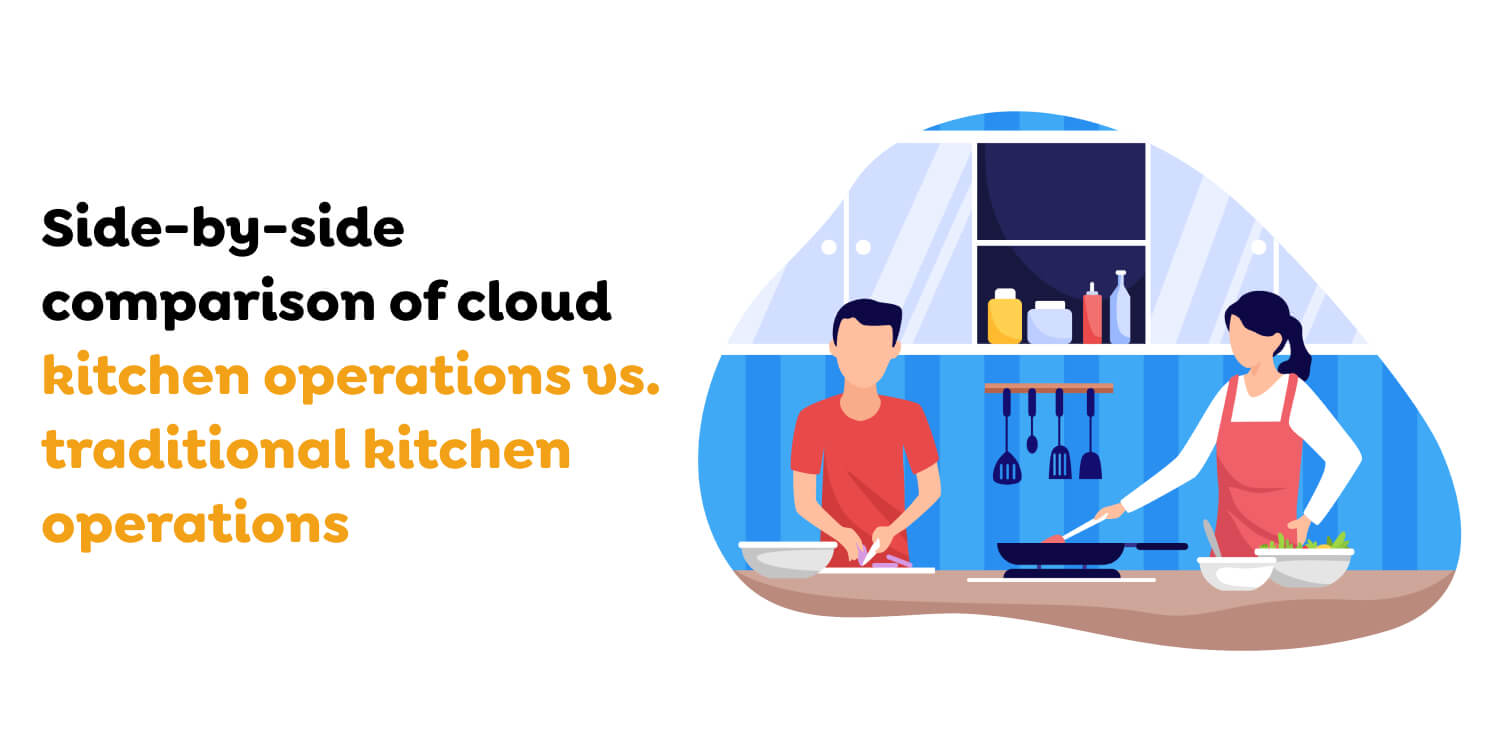
Cloud kitchens and conventional kitchens embody different paradigms within the food sector, each with its singular attributes and benefits. Let’s explore the primary distinctions:
Cloud kitchens have profoundly altered the dynamics of the food industry, influencing various aspects from food preparation to consumption. Key impacts include:
Cloud kitchens have not only introduced operational efficiency but have also shaped a new landscape for the food industry, introducing diversity and innovation.
Let’s delve into the impact of apps and instant delivery on the food industry, as it has truly revolutionized the landscape.
Initially, food delivery apps emerged as a restaurant discovery and food delivery platform, fundamentally changing how people interacted with food establishments.
1. Restaurant Discovery: Apps provide users with a platform to discover and review restaurants, offering a comprehensive database of eateries, menus, and customer reviews.
Also Read: Restaurant Mobile App Development: Ordering and Delivery Made Easier
2. Food Delivery Services: Expanding its services, apps ventured into food delivery, facilitating convenient home delivery from a wide range of restaurants.
3. Cloud Kitchens App: Recognizing the potential of cloud kitchens, food delivery apps established their own centralized cooking facilities. These kitchens cater to the increasing demand for online food orders without the need for traditional restaurant setups.
4. Aggregator and Enabler: The food delivery app acts as both an aggregator, bringing consumers and various restaurants and cloud kitchens together, and an enabler, providing infrastructure for aspiring chefs and food entrepreneurs to enter the industry.
5. Technology Integration: Leveraging technology for efficient order management, real-time tracking, and data analytics, food delivery apps enhance the customer experience and operational efficiency for restaurants and cloud kitchens.
6. Changing Consumer Behavior: Delivery apps have played a pivotal role in shaping consumer behavior, promoting the convenience of online food ordering and delivery.
7. Increased Market Reach: Food delivery app services and cloud kitchens have allowed restaurants, particularly smaller ones, to expand their reach and presence in the market.
8. Digital Transformation: Mobile app embrace of cloud kitchens represents a digital transformation in the food industry, encouraging other businesses to adopt technology for improved operations.
9. Economic Opportunities: The establishment of cloud kitchens in UK on any food delivery app has created economic opportunities for chefs and entrepreneurs to start food ventures with minimal overhead costs.
A food delivery app development company has fundamentally transformed the dining industry and has been instrumental in shaping the cloud kitchen business in UK. Understanding the app’s role was crucial in comprehending the significant changes in the industry.
Also Read : Developing an On-Demand Food Delivery App Like Deliveroo
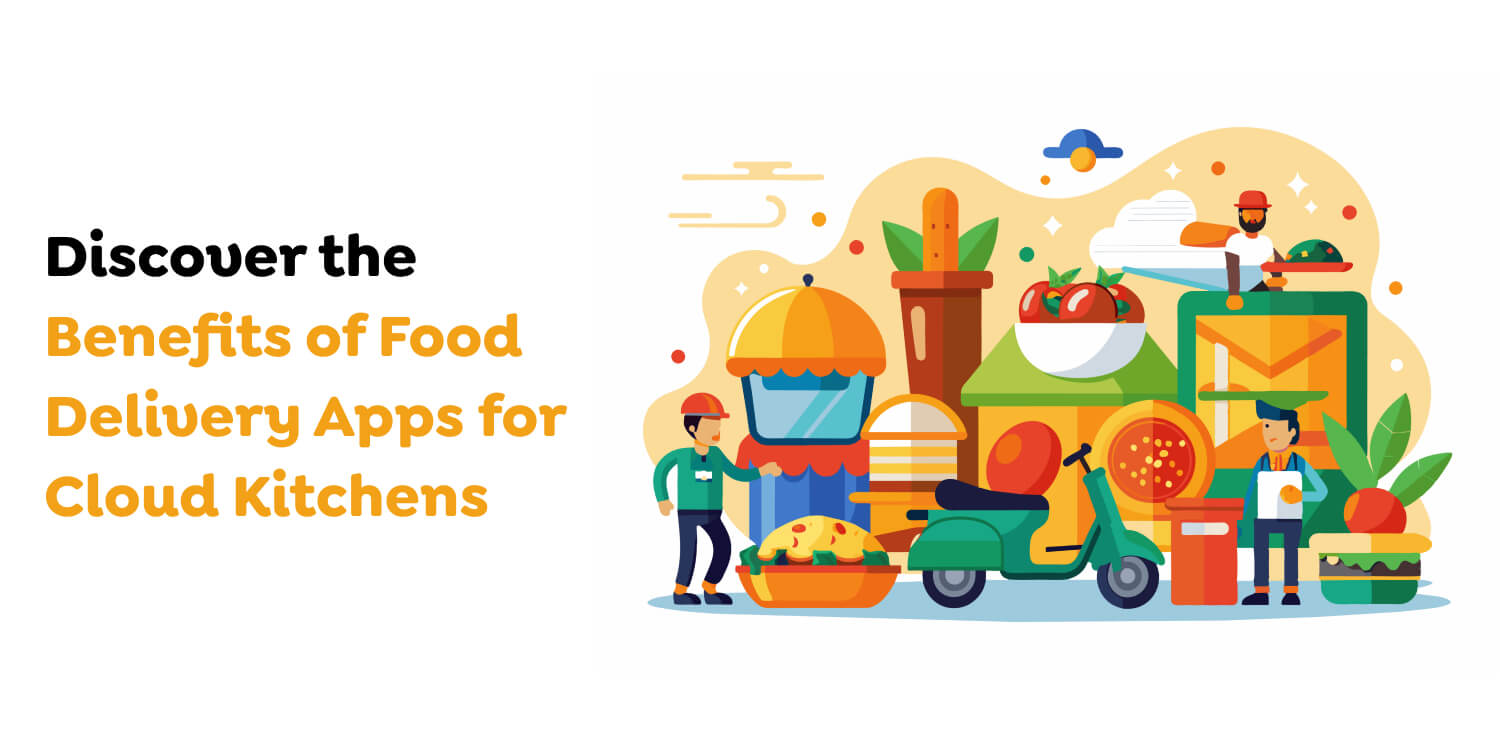
Food delivery apps provide cloud kitchens with a broader customer reach and streamlined order management, ensuring efficient operations. They enable data-driven insights, enhance customer engagement, and boost profitability with minimal overhead costs.
Also Read : How to Build a Successful Food Delivery App Like Uber Eats: Essential Steps and Features
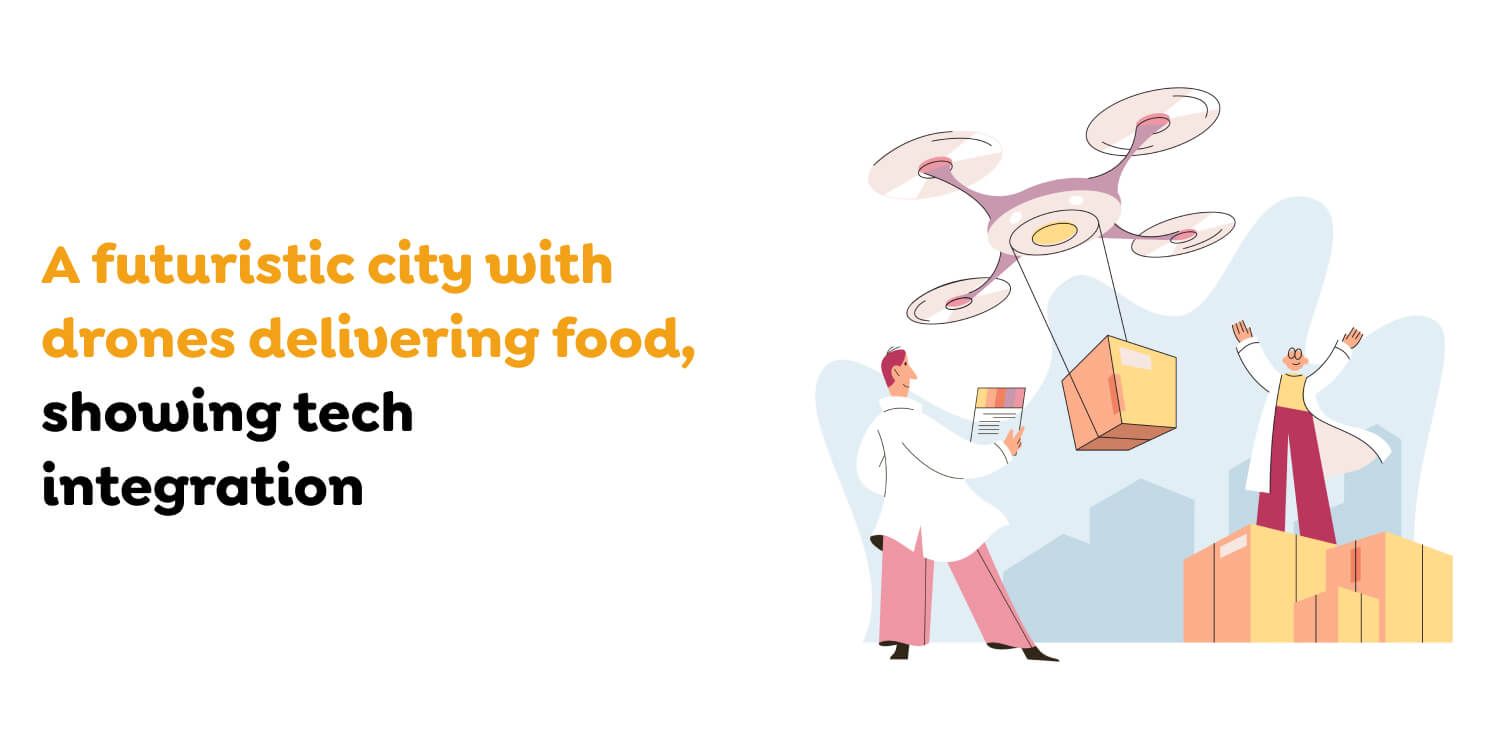
The future of cloud kitchens promises remarkable growth, signaling a significant transformation in the restaurant industry landscape.
The future of cloud kitchens shines brightly, driven by market expansion, evolving dynamics, technological advancements, adaptive business models, and a focus on legal compliance.
To gain a comprehensive understanding of the evolving cloud kitchen business model, it’s essential to consider both its advantages and disadvantages. Here’s a concise overview based on various sources:
Understanding these pros and cons is crucial for new entrepreneurs considering venturing into the cloud kitchen business.
The rise of cloud kitchens in UK signifies a contemporary approach to the food industry, gaining traction for their streamlined operations and emphasis on online orders and deliveries. These kitchens present lower initial expenses, making them attractive to budding entrepreneurs without needing elaborate physical spaces or large staff.
With a clear menu, high-quality ingredients, and strategic investments, cloud kitchens in UK offer a cost-effective and efficient method to run a food enterprise. Investing in top-notch cloud kitchen equipment is essential for success.
Essentially, cloud kitchens function like virtual restaurants, adopting the delivery-focused model of the digital age. They embody a modern formula for a lucrative food business in today’s dynamic market.
Connect with Techugo, a mobile app development company in UK, and explore how our developers and designers can elevate your food delivery business to new heights.
Get in touch with our team today to start the conversation and discover the best way to develop your own app.
Write Us
sales@techugo.comOr fill this form